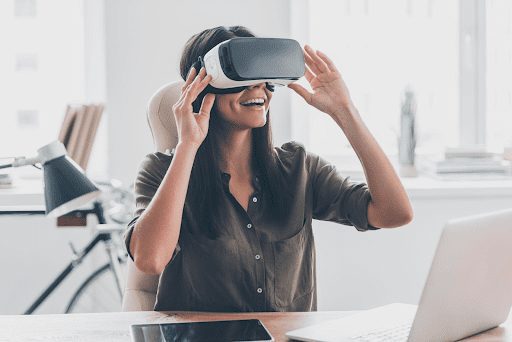The idea of mental health and technology often conjures the image of apathetic teenagers staring into their phones, at the expense of direct, in-person interaction. Yet a more complex view of the interaction between our well-being and the technological advancements of the current era finds that, together with its drawbacks, technology has the potential to offer a number of key benefits to patients’ mental health. Listed below are several of the field’s more promising developments.
It may sound counter-intuitive, but the American Food and Drug Association (FDA) has actually approved a video game for the purpose of helping children with attention-deficit/hyperactivity disorder (ADHD). The idea behind this prescription-only, therapeutic gaming device is to specifically help alleviate symptoms of inattention, among children ages 8-12. The game offers players the challenge of performing several tasks simultaneously, within the same gaming environment.
The American Psychiatric Association (APA) defines ADHD as a developmental disorder that combines distractibility, hyperactivity, and impulsivity. As such, it can interfere with children’s (and older individuals’) ability to achieve developmental milestones by affecting their ability to focus, creating a general restlessness, and causing them to experience great frustration regarding delayed gratification.
The game received its FDA-approved status for its combined safety and efficacy, after empirical studies concluded it was able to offer significant symptom relief. It is intended to be used as part of a comprehensive therapeutic program that also includes psychotherapy, medication, or education programs.
No significant or adverse effects have been found. The game’s most common side effects are dizziness, frustration, headache, emotional reactivity, and aggression.

Closely tied to the above-mentioned video gaming, virtual reality at large is now being used as a middle ground of sorts, between the worlds of external reality, imagination, and the therapeutic setting. Developers have already created elaborate worlds that tackle stressful situations in an effort to help patients struggling with different scenarios the opportunity to try out new responses to them, within a virtual setting.
The decrease in VR equipment costs have opened this market up to a larger number of researchers looking to employ its universe-building abilities for the benefit of mental health patients. VR technology already offers social scenarios as practice for individuals contending with autism, or anxiety-based conditions such as phobias and post-traumatic stress disorder (PTSD).
Thanks to its online availability, artificial intelligence (AI) has begun offering patients far greater accessibility when it comes to receiving mental healthcare. This allows mental health resources to reach those who struggle to leave their homes or are far from the nearest available clinic.
Its most cutting-edge advantage, though, is its use of complex algorithms to calculate the specific mental health needs of different patients. AI data configurations can help mental health professionals analyze speech patterns for signs of emotional distress, help manage treatment compliance, and adjust medication dosage, all at an almost immediate pace.
Like other forms of technological development, AI tracking, be it of mental health symptoms or otherwise, can feel invasive. After all, it is based on surveillance of our every move. The ethical dilemmas attached to such advancements are certainly worth discussing, but that does not take away from the benefits that such calculations can offer those in need of real-time care that is tailored to their own personal challenges.

The technology is already here, though at present there does not seem to be a company working on providing it to patients. In 2017, the FDA approved the use of a pill that held a digital ingestion tracking system that can track whether patients had taken their medication. By sending confirmation to their smartphone, the pill’s tracking device could offer patients battling forgetfulness, due to dementia or Alzheimer’s, a crucial tool in their everyday treatment regimen.
Self-neglect is another possible symptom of different mental health conditions, at times appearing as part of schizophrenia, depression, and many other disorders. Tracking one’s medication intake could therefore provide caretakers vital information, improving their ability to offer patients effective support.
Despite its clear potential as an important tool and patient treatment, a surprising obstacle has risen in its path: in 2020, the only company to have received an FDA approval status for this technology filed for bankruptcy. A disappointing setback, to be sure, yet it does not undo the importance of the FDA approval status it has already received. Developed further by a more financially stable company, the effectiveness of such a medical device could hopefully deliver upon its promise of greater monitoring and overall care.
Perhaps the most established entry on this list, many smartphone, tablet and computer applications are focusing on different types of mental health support they can offer clients.
Conditions centered on mood, anxiety, or depression can particularly benefit from such apps. Mental health-related apps offer services such as: